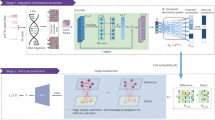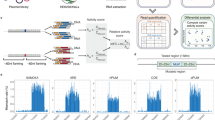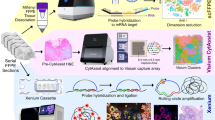Abstract
HOP homeobox (HOPX) is an unusual homeobox gene encoding three spliced transcript variants, among which the only HOPX-β promoter harbors CpG islands. The characteristics of its promoter methylation was analyzed using bisulfite sequencing and quantitative-methylation-specific polymerase chain reaction (Q-MSP), and the effects of HOPX expression were also examined. HOPX-β expression was silenced in all gastric cancer cell lines tested; its expression could be restored by treatment with demethylating agent. On Q-MSP, HOPX-β hypermethylation (cut-off value of 3.55) was found in 84% (67 out of 80) of primary tumor tissues and 10% (8 out of 80) of the corresponding normal tissues and could discriminate normal from tumor tissues (P<0.0001). The prognosis of the advanced cases with HOPX-β hypermethylation was as poor as those with stage IV disease when cut-off value was set at 11.28. This finding was validated in an independent cohort of 90 advanced gastric cancers. The HOPX-β hypermethylation was also an independent prognostic factor (P=0.029) on multivariate analysis. Exogenous HOPX expression significantly inhibited cell proliferation, colony formation and invasion as well as enhanced apoptosis. Taken together, HOPX-β promoter methylation is a frequent and cancer-specific event in gastric cancer. Quantitative assessment of HOPX-β methylation has great clinical potential as a marker of tumor aggressiveness.
This is a preview of subscription content, access via your institution
Access options
Subscribe to this journal
Receive 50 print issues and online access
$259.00 per year
only $5.18 per issue
Buy this article
- Purchase on Springer Link
- Instant access to full article PDF
Prices may be subject to local taxes which are calculated during checkout





Similar content being viewed by others
Accession codes
References
Brena RM, Huang TH, Plass C . (2006). Quantitative assessment of DNA methylation: potential applications for disease diagnosis, classification, and prognosis in clinical settings. J Mol Med 84: 365–377.
Cameron EE, Bachman KE, Myohanen S, Herman JG, Baylin SB . (1999). Synergy of demethylation and histone deacetylase inhibition in the re-expression of genes silenced in cancer. Nat Genet 21: 103–107.
Chen F, Kook H, Milewski R, Gitler AD, Lu MM, Li J et al. (2002). Hop is an unusual homeobox gene that modulates cardiac development. Cell 110: 713–723.
Chen Y, Pacyna-Gengelbach M, Deutschmann N, Niesporek S, Petersen I . (2007). Homeobox gene HOP has a potential tumor suppressive activity in human lung cancer. Int J Cancer 121: 1021–1027.
Crew KD, Neugut AI . (2006). Epidemiology of gastric cancer. World J Gastroenterol 12: 354–362.
Esteller M . (2003). Relevance of DNA methylation in the management of cancer. Lancet Oncol 4: 351–358.
Japanese Gastric Cancer Association (1998). Japanese Classification of Gastric Carcinoma. 2nd English edn Gastric Cancer 1: 10–24.
Kee HJ, Kim JR, Nam KI, Park HY, Shin S, Kim JC et al. (2007). Enhancer of polycomb1, a novel homeodomain only protein-binding partner, induces skeletal muscle differentiation. J Biol Chem 282: 7700–7709.
Kook H, Yung WW, Simpson RJ, Kee HJ, Shin S, Lowry JA et al. (2006). Analysis of the structure and function of the transcriptional coregulator HOP. Biochemistry 45: 10584–10590.
Laird PW . (2003). The power and the promise of DNA methylation markers. Nat Rev Cancer 3: 253–266.
Lehnert T, Rudek B, Kienle P, Buhl K, Herfarth C . (2002). Impact of diagnostic laparoscopy on the management of gastric cancer: prospective study of 120 consecutive patients with primary gastric adenocarcinoma. Br J Surg 89: 471–475.
Liu JW, Kim MS, Nagpal J, Yamashita K, Poeta L, Chang X et al. (2007). Quantitative hypermethylation of NMDAR2B in human gastric cancer. Int J Cancer 121: 1994–2000.
Livak KJ, Schmittgen TD . (2001). Analysis of relative gene expression data using real-time quantitaitve PCR and the 2(-Delta Delata C(T)) method. Methods 25: 402–408.
Lowy AM, Mansfield PF, Leach SD, Pazdur R, Dumas P, Ajani JA . (1999). Response to neoadjuvant chemotherapy best predicts survival after curative resection of gastric cancer. Ann Surg 229: 303–308.
Mandelker DL, Yamashita K, Tokumaru Y, Mimori K, Howard DL, Tanaka Y et al. (2005). PGP9.5 promoter methylation is an independent prognostic factor for esophageal squamous cell carcinoma. Cancer Res 65: 4963–4968.
Miotto E, Sabbioni S, Veronese A, Calin GA, Gullini S, Liboni A et al. (2004). Frequent aberrant methylation of the CDH4 gene promoter in human colorectal and gastric cancer. Cancer Res 64: 8156–8159.
Nakajima T . (2002). Gastric cancer treatment guidelines in Japan. Gastric Cancer 5: 1–5.
Nishihira T, Hashimoto Y, Katayama M . (1993). Molecular and cellular features of esophageal cancer cells. J Cancer Res Clin Oncol 119: 441–449.
Ooki A, Yamashita K, Kikuchi S, Sakuramoto S, Katada N, Watanabe M . (2009). Phosphatase of regenerating liver-3 as a convergent therapeutic target for lymph node metastasis in esophageal squamous cell carcinoma. Int J Cancer (in press).
Oshimo Y, Oue N, Mitani Y, Nakayama H, Kitadai Y, Yoshida K et al. (2004a). Frequent loss of RUNX3 expression by promoter hypermethylation in gastric carcinoma. Pathobiology 71: 137–143.
Oshimo Y, Oue N, Mitani Y, Nakayama H, Kitadai Y, Yoshida K et al. (2004b). Frequent epigenetic inactivation of RIZ1 by promoter hypermethylation in human gastric carcinoma. Int J Cancer 110: 212–218.
Park J, Song SH, Kim TY, Choi MC, Jong HS, Lee JW et al. (2004). Aberrant methylation of integrin alpha4 gene in human gastric cancer cells. Oncogene 23: 3474–3480.
Remmele W, Schicketanz KH . (1993). Immunohistochemical determination of estrogen and progesterone receptor content in human breast cancer. Computer-assisted image analysis (QIC score) vs subjective grading (IRS). Pathol Res Pract 189: 862–866.
Remmele W, Stegner HE . (1987). Recommendation for uniform definition of an immunoreactive score (IRS) for immunohistochemical estrogen receptor detection (ER-ICA) in breast cancer tissue. Pathologe 8: 138–140.
Sakuramoto S, Sasako M, Yamaguchi T, Kinoshita T, Fujii M, Nashimoto A et al. (2007). Adjuvant chemotherapy for gastric cancer with S-1, an oral fluoropyrimidine. N Engl J Med 357: 1810–1820.
Sotiriou C, Piccart MJ . (2007). Taking gene-expression profiling to the clinic: when will molecular signatures become relevant to patient care? Nat Rev Cancer 7: 545–553.
Takahashi T, Suzuki M, Shigematsu H, Shivapurkar N, Echebiri C, Nomura M et al. (2005). Aberrant methylation of Reprimo in human malignancies. Int J Cancer 115: 503–510.
Tokumaru Y, Nomoto S, Jeronimo C, Henrique R, Harden S, Trink B et al. (2003). Biallelic inactivation of the RIZ1 gene in human gastric cancer. Oncogene 22: 6954–6958.
Tokumaru Y, Yamashita K, Kim MS, Park HL, Osada M, Mori M et al. (2008). The role of PGP9.5 as a tumor suppressor gene in human cancer. Int J Cancer 123: 753–759.
Tomii K, Tsukuda K, Toyooka S, Dote H, Hanafusa T, Asano H et al. (2007). Aberrant promoter methylation of insulin-like growth factor binding protein-3 gene in human cancers. Int J Cancer 120: 566–573.
Ushijima T . (2007). Epigenetic field for cancerization. J Biochem Mol Biol 40: 142–150.
Waki T, Tamura G, Sato M, Terashima M, Nishizuka S, Motoyama T . (2003). Promoter methylation status of DAP-kinase and RUNX3 genes in neoplastic and non-neoplastic gastric epithelia. Cancer Sci 94: 360–364.
Wei D, Gong W, Kanai M, Schlunk C, Wang L, Yao JC et al. (2005). Drastic down-regulation of Kruppel-like factor 4 expression is critical in human gastric cancer development and progression. Cancer Res 65: 2746–2754.
Yamaguchi S, Asanoma K, Takao T, Kato K, Wake N . (2009). Homeobox gene HOPX is epigenetically silenced in human uterine endometrial cancer and suppresses estrogen-stimulated proliferation of cancer cells by inhibiting serum response factor. Int J Cancer 124: 2577–2588.
Yamashita K, Kim MS, Park HL, Tokumaru Y, Osada M, Inoue H et al. (2008). HOP/OB1/NECC1 promoter DNA is frequently hypermethylated and involved in tumorigenic ability in esophageal squamous cell carcinoma. Mol Cancer Res 6: 31–41.
Yamashita K, Park HL, Kim MS, Osada M, Tokumaru Y, Inoue H et al. (2006). PGP9.5 methylation in diffuse-type gastric cancer. Cancer Res 66: 3921–3927.
Yamashita K, Watanabe M . (2009). Clinical significance of tumor markers and an emerging perspective on colorectal cancer. Cancer Sci 100: 195–199.
Zhang YJ, Fang JY . (2008). Molecular staging of gastric cancer. J Gastroenterol Hepatol 23: 856–860.
Zou B, Chim CS, Zeng H, Leung SY, Yang Y, Tu SP et al. (2006). Correlation between the single-site CpG methylation and expression silencing of the XAF1 gene in human gastric and colon cancers. Gastroenterology 131: 1835–1843.
Acknowledgements
This work was supported, in part, by the Grant-in-Aid for Cancer Research from the Ministry of Health, Labour and Welfare of Japan and by the Japanese Foundation for Multidisciplinary Treatment of Cancer.
Author information
Authors and Affiliations
Corresponding authors
Ethics declarations
Competing interests
The authors declare no conflict of interest.
Additional information
Supplementary Information accompanies the paper on the Oncogene website
Supplementary information
Rights and permissions
About this article
Cite this article
Ooki, A., Yamashita, K., Kikuchi, S. et al. Potential utility of HOP homeobox gene promoter methylation as a marker of tumor aggressiveness in gastric cancer. Oncogene 29, 3263–3275 (2010). https://doi.org/10.1038/onc.2010.76
Received:
Revised:
Accepted:
Published:
Issue Date:
DOI: https://doi.org/10.1038/onc.2010.76
Keywords
This article is cited by
-
HOPX is a tumor-suppressive biomarker that corresponds to T cell infiltration in skin cutaneous melanoma
Cancer Cell International (2023)
-
Knock-out of Hopx disrupts stemness and quiescence of hematopoietic stem cells in mice
Oncogene (2020)
-
Epigenetically regulated PAX6 drives cancer cells toward a stem-like state via GLI-SOX2 signaling axis in lung adenocarcinoma
Oncogene (2018)
-
CD24 regulates cancer stem cell (CSC)-like traits and a panel of CSC-related molecules serves as a non-invasive urinary biomarker for the detection of bladder cancer
British Journal of Cancer (2018)
-
HOPX hypermethylation promotes metastasis via activating SNAIL transcription in nasopharyngeal carcinoma
Nature Communications (2017)



